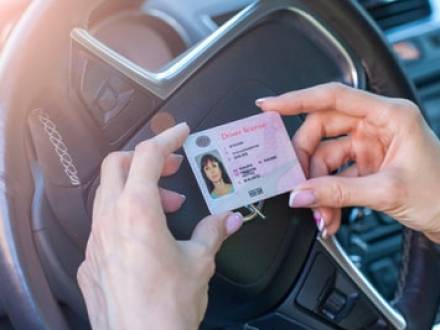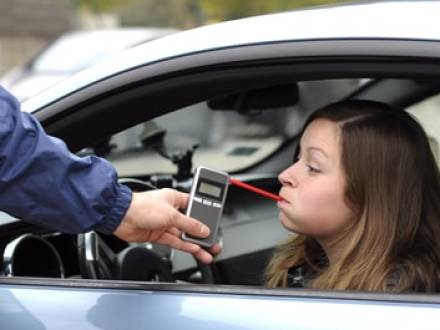Recent Blog Posts
Second Chances: How Illinois Handles Juvenile Drug Offenses
 The state of Illinois tries to treat juvenile drug offenses as early warning signs rather than life-defining events by offering juveniles the opportunity to seek second chances through rehabilitation. Whether the charges are simple possession or more serious, many minors with drug charges may be eligible for a diversion program, counseling, probation, or juvenile drug court, rather than adult prisons.
The state of Illinois tries to treat juvenile drug offenses as early warning signs rather than life-defining events by offering juveniles the opportunity to seek second chances through rehabilitation. Whether the charges are simple possession or more serious, many minors with drug charges may be eligible for a diversion program, counseling, probation, or juvenile drug court, rather than adult prisons.
Whether a structured treatment plan (Juvenile Drug Court Treatment Act 05 ILCS 410/) or a community-based intervention, Illinois juvenile laws generally emphasize healing over punishment in an effort to steer young people to a better path without a serious criminal record hindering their futures. If your child has been charged with a drug crime in Illinois, the best step you can take is to speak to an experienced Aurora, IL juvenile crimes lawyer.
How to Overcome a Theft Charge in Illinois
 Being charged with theft in Illinois can be a frightening, overwhelming experience. It is important to remember that a charge is not the same as a conviction. Whether you have been accused of shoplifting, employee theft, or even a more serious charge like burglary or auto theft, you have legal rights and possible defenses.
Being charged with theft in Illinois can be a frightening, overwhelming experience. It is important to remember that a charge is not the same as a conviction. Whether you have been accused of shoplifting, employee theft, or even a more serious charge like burglary or auto theft, you have legal rights and possible defenses.
The prosecutor in the case must prove the case beyond a reasonable doubt, including showing intent on your part and valuing the stolen property. The right legal strategy, combined with experienced legal representation, can result in a reduction of charges or less severe penalties. In some cases, your Kane County, IL criminal defense lawyer may even be able to have the case dismissed, depending on the circumstances.
What Are the Types of Theft Charges in Illinois
Under the Illinois Criminal Code, a person commits theft when he or she knowingly exerts control over someone else’s property without authorization from the owner or:
How a Speeding Violation Can Affect Your CDL License
 A commercial driver’s license (CDL) is required to operate large, heavy, or hazardous materials vehicles, including tractor-trailers, buses, delivery trucks, and tankers, while a non-commercial license is used for personal vehicles, motorcycles, and small trucks. There are three classes of CDL licenses.
A commercial driver’s license (CDL) is required to operate large, heavy, or hazardous materials vehicles, including tractor-trailers, buses, delivery trucks, and tankers, while a non-commercial license is used for personal vehicles, motorcycles, and small trucks. There are three classes of CDL licenses.
A Class A CDL is for vehicles weighing more than 26,001 pounds, like flatbeds, tractor-trailers, and livestock carriers. A Class B CDL is also for vehicles weighing more than 26,001 pounds, but is primarily for school buses, trailers, and dump trucks. A Class C CDL is for any vehicle that does not fit in either a Class A or Class B license category but carries more than 16 passengers or is designated as hazmat.
There are approximately 1,198,085 CDL Class A drivers who are currently employed; 93.2 percent of these drivers are males and 6.8 percent are females. There are more than 661,446 Class B CDL drivers, with 90 percent male and 10 percent female. Class B CDL drivers are the highest-paid drivers in the construction industry. CDL license holders are held to higher standards, including 0.04 percent BAC rather than 0.08 percent BAC where DUI charges are concerned.
Suspensions and Revocations for Out-of-State Situations
 Navigating a driver’s license suspension or revocation for an Illinois resident can be frustrating enough. Imagine if you are an out-of-state resident who ends up with a license suspension from Illinois. What does this mean for your home state? Is your driver’s license suspended there as well? And since you likely do not have an Illinois driver’s license, how can the state suspend your license? What if you are an Illinois resident whose license was suspended while you were in another state?
Navigating a driver’s license suspension or revocation for an Illinois resident can be frustrating enough. Imagine if you are an out-of-state resident who ends up with a license suspension from Illinois. What does this mean for your home state? Is your driver’s license suspended there as well? And since you likely do not have an Illinois driver’s license, how can the state suspend your license? What if you are an Illinois resident whose license was suspended while you were in another state?
To be sure, this is a complex issue. Interstate agreements require all states to notify one another when a person has had his or her driver’s license suspended in a state where he or she does not reside. Infractions like a DUI or leaving the scene of an accident can result in the state where the infraction occurred and your home state suspending your driver’s license. If you have questions regarding an out-of-state driver’s license suspension, it can be beneficial to speak to an experienced Aurora, IL driver’s license suspension lawyer.
Could Magic Mushrooms Be Legalized in Illinois?
 More than 1,800 new bills were introduced by Illinois House Lawmakers for 2025. One of these bills (HB1143) would decriminalize and tax psilocybin (commonly known as "magic mushrooms") and psilocybin products for use by residents of Illinois who are at least 21 years old. Under the bill, a person who is under the influence of psilocybin would not be allowed to operate a motor vehicle.
More than 1,800 new bills were introduced by Illinois House Lawmakers for 2025. One of these bills (HB1143) would decriminalize and tax psilocybin (commonly known as "magic mushrooms") and psilocybin products for use by residents of Illinois who are at least 21 years old. Under the bill, a person who is under the influence of psilocybin would not be allowed to operate a motor vehicle.
Several U.S. states and cities have already decriminalized possession of psychedelic plants and fungi or have made these offenses a low priority for law enforcement. The bill, as it is currently written, would not change the status of peyote, not because of its intoxication properties, but because the peyote plant is considered endangered and because of the significance of peyote in Native American spirituality.
What Are the Best Defenses to Burglary Charges?
 A recent rash of early morning burglaries targeting businesses on the South and Southwest side of Chicago has led police to ask people to be on the lookout for a man between the ages of 25 and 40 wearing a black face mask, a blue jacket, and a green hoodie. The suspect uses bricks to smash glass and steal cash and property, usually between the hours of 2 a.m. and 4:30 a.m.
A recent rash of early morning burglaries targeting businesses on the South and Southwest side of Chicago has led police to ask people to be on the lookout for a man between the ages of 25 and 40 wearing a black face mask, a blue jacket, and a green hoodie. The suspect uses bricks to smash glass and steal cash and property, usually between the hours of 2 a.m. and 4:30 a.m.
The criminal offense of burglary is often portrayed in the media as a person dressed in dark clothing and a mask, lurking in the shadows, waiting to break into a structure and take something that belongs to another person. The legal reality of burglary is a bit more nuanced, hinging on two elements: unauthorized entry into a building or structure and the intent to commit a criminal offense once inside.
What If Your Driver’s License Reinstatement Is Denied?
 A DUI conviction or too many points on your driving record can cause you to lose your license. Since most of us rely on our vehicles to commute to and from work, take the kids to school, run errands, and participate in recreational activities, being without a vehicle can be a challenging situation. If you have been dealing with a suspended license for the past year, two years, or even longer, it can be exciting when the time approaches for license reinstatement.
A DUI conviction or too many points on your driving record can cause you to lose your license. Since most of us rely on our vehicles to commute to and from work, take the kids to school, run errands, and participate in recreational activities, being without a vehicle can be a challenging situation. If you have been dealing with a suspended license for the past year, two years, or even longer, it can be exciting when the time approaches for license reinstatement.
Typically, the process goes smoothly, but occasionally, challenges arise. There are many issues that can stall out a driver’s license reinstatement. It can be helpful to go over the list of the most common reasons for license reinstatement denial so you can address any potential problems and increase your likelihood of a successful outcome. It can also be helpful to speak to an experienced Kane County, IL license reinstatement attorney.
What Tactics Does Law Enforcement Not Want You to Know?
 One in three American adults – approximately 78 million people – have a criminal record. Of course, not all of these individuals ended up behind bars. Some were arrested or charged but never convicted, while many others were convicted of minor, non-violent crimes. Unfortunately, even the mildest criminal record can follow you for your entire life. It is no secret that encounters with law enforcement can be intimidating, even frightening, for most people.
One in three American adults – approximately 78 million people – have a criminal record. Of course, not all of these individuals ended up behind bars. Some were arrested or charged but never convicted, while many others were convicted of minor, non-violent crimes. Unfortunately, even the mildest criminal record can follow you for your entire life. It is no secret that encounters with law enforcement can be intimidating, even frightening, for most people.
The police are allowed to use tactics that many people are unaware of to elicit a confession or an arrest. While most of us know that we should take our right to remain silent seriously, that can go out the window quickly when there are two trained police officers interrogating you for hours and hours. If you have been charged with a criminal offense, the single best thing you can do to protect your rights and your future is to contact an Aurora, IL criminal defense attorney.
Is Intoxication a Valid Defense to an Illinois Crime?
 Whether intoxication is a valid defense to a criminal offense will usually hinge on whether the intoxication is voluntary or involuntary - and what state the crime occurs in. Voluntary intoxication occurs when a person willfully and knowingly drinks alcohol with the clear knowledge that it could result in drunkenness.
Whether intoxication is a valid defense to a criminal offense will usually hinge on whether the intoxication is voluntary or involuntary - and what state the crime occurs in. Voluntary intoxication occurs when a person willfully and knowingly drinks alcohol with the clear knowledge that it could result in drunkenness.
Involuntary intoxication could occur when a person drinks punch at a party after being told the punch has no alcohol in it. If you are facing criminal charges, it is important to speak to an experienced Aurora, IL criminal defense attorney who can assess the facts and evidence in your case and build a comprehensive defense.
What is a Specific Intent Crime, and How Does Involuntary Intoxication Relate?
A specific intent crime is one that the defendant intentionally committed with the intent to cause a particular result. (Knowing the probable outcome is not the same as specifically intending to cause the result). If the language in a state criminal statute uses words like "voluntarily," "willfully," or "knowingly," it is likely a general intent crime. If the statute requires specific intent for a crime, then involuntary intoxication could be a defense.
Are Women at a Greater Disadvantage When Charged with DUI?
 Most statistics show that about 80 percent of all DUI arrests are men and that men are involved in 79.5 percent of drunk driving fatalities. A few decades ago, the number of women arrested for DUI was even lower, having risen over the past 10-15 years. Unfortunately, virtually every aspect of a DUI, including field sobriety tests and breathalyzer tests, is geared toward males, meaning that a woman charged with DUI may be at an immediate disadvantage.
Most statistics show that about 80 percent of all DUI arrests are men and that men are involved in 79.5 percent of drunk driving fatalities. A few decades ago, the number of women arrested for DUI was even lower, having risen over the past 10-15 years. Unfortunately, virtually every aspect of a DUI, including field sobriety tests and breathalyzer tests, is geared toward males, meaning that a woman charged with DUI may be at an immediate disadvantage.
Breathalyzers treat each subject the same regardless of the known differences in how women metabolize alcohol as compared to men. There are other issues that place women at a disadvantage during a DUI stop as well. If you are a female facing DUI charges, it is important to speak to an experienced Aurora, IL criminal defense attorney as quickly as possible to ensure you receive the best defense available.

 630-448-2001
630-448-2001






